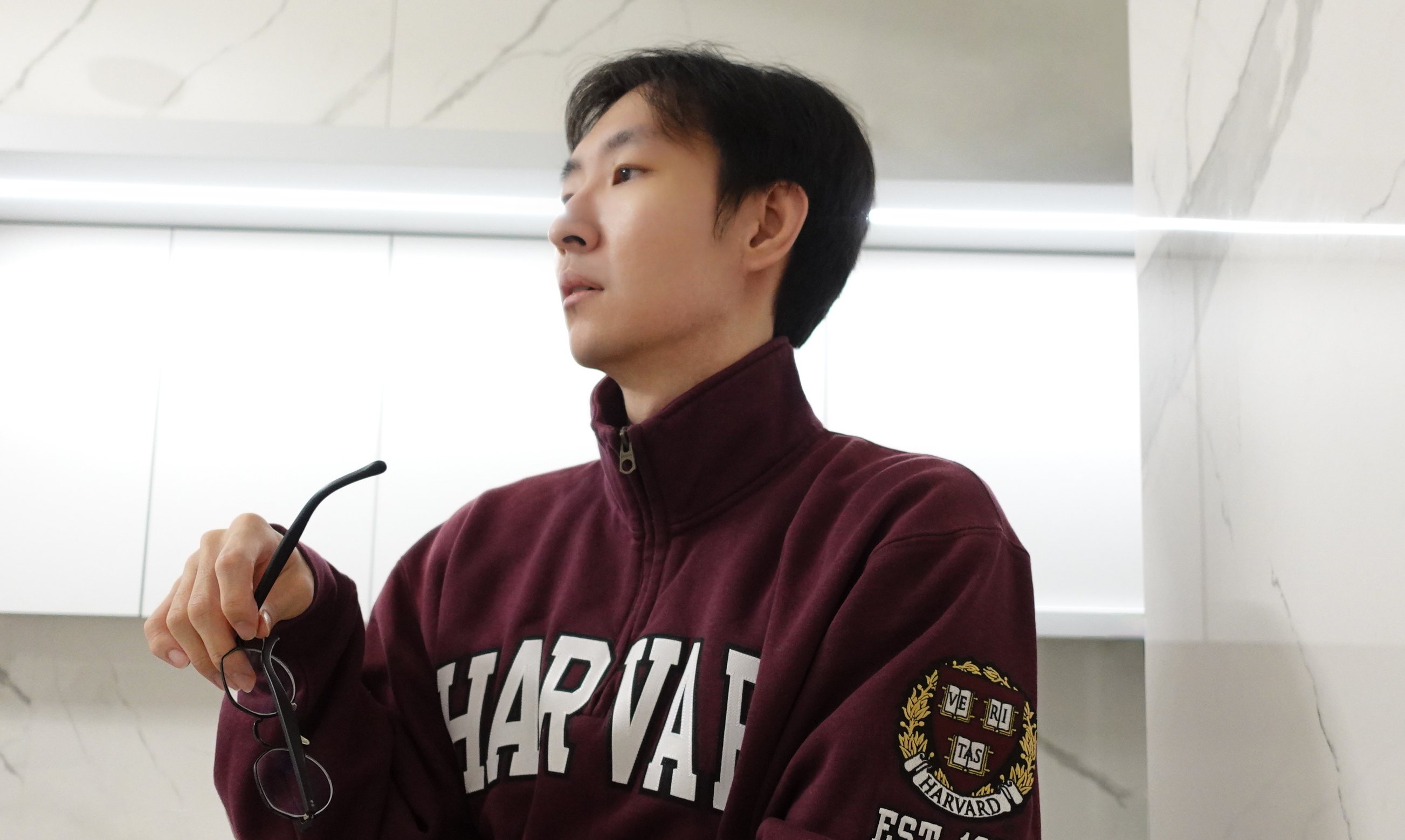
Trained in cognitive linguistics, Harvey Bonmu Ku now turns to a dual pursuit: the law of language and the language of law.
Although he enjoyed his evening runs along the Charles River during his time at Harvard, Harvey Bonmu Ku had to put his doctoral studies on hold after completing his master’s degree. Mandatory military service called him back to South Korea. “I was proud to serve my country,” he said, “though I did miss those night runs near campus, especially by the river.”
Two years had passed since he left Boston. He was on a night jog along the Han River in Seoul, while on a brief break from military service, wondering what lay ahead. He pictured himself on a legal path, but with distance—both literal and professional—that future felt more like a memory than a plan. Lost in thought, he reached for his phone mid-run and opened the LSAT score report—unsure of what he’d find.
With highest honors from UC Berkeley, a scholarship to Harvard, and membership in Mensa, Ku’s academic profile was already exceptional. Still, he kept his expectations in check, out of humility and a touch of superstition. His practice scores were consistently strong—177 and above—but he told himself he’d be content with anything in the 170s, scores solidly within the median range at elite schools like Harvard and Stanford. But when the results appeared, he froze. The second digit wasn’t a 7. It was 8. A perfect score: 180.

Only 11 of the 62,920 candidates nationwide who took the Law School Admission Test (LSAT) in 2024 reached that rarefied mark—a vanishingly small 0.017%, according to the latest five-year report by the Law School Admission Council (LSAC). The LSAT is widely regarded as one of the most challenging standardized exams in the world, requiring mastery of logical inference and textual precision under pressure.
His research background in cognitive linguistics turned out to be particularly helpful. “Take a sentence like, ‘Some students scored 180 on the LSAT,’” he said. “Quantifiers like ‘some’ appear frequently in LSAT.” In everyday language, “some” is usually taken to mean “not all,” shaped by conversational expectations that speakers offer the most informative version of the truth. “So we intuitively hear, ‘Not all students scored 180,’” he said. “But on the LSAT, ‘some’ must be read strictly as ‘at least one.’ That’s why even a sentence like ‘All students scored 180’ can be logically valid, however counterintuitive it may sound.”
“I had to flip the coin—or more accurately, flip my brain—from a pragmatics brain to a semantic one.” The transition wasn’t immediate, but once it settled, his practice scores stabilized—consistently reaching 177 and above.
He is setting his sights on a rare academic ambition: not one degree, but two—a J.D. from law school, and a Ph.D. from graduate school. The two fields, in his mind, are not separate but symbiotic. “Ultimately,” he said, “I want to study the language of law and the law of language.”
“It feels both refreshing and reminiscent,” he said, recalling a high school crush who went on to attend the finest law school in the United Kingdom after graduation. “I wanted to be her,” he said. “Not for what she studied, but for how completely she seemed to know herself. Even now, when I think of brilliance, it’s still her face that comes to mind.” Years later, after circling the idea without naming it, he arrives at the threshold of legal thought—as if it had been waiting all along.
“Ambition can be unquenchable—the more you have, the more it asks of you,” Ku said. “I move with intention now,” he continued. “And when the tide recedes, I hope to be the kind of legal voice that remains when everything else washes away. The salt of the earth.”











From Beacon Hill to Back Bay, get the latest with The Bostonian. We deliver the most important updates, local investigations, and community stories—keeping you informed and connected to every corner of Boston.